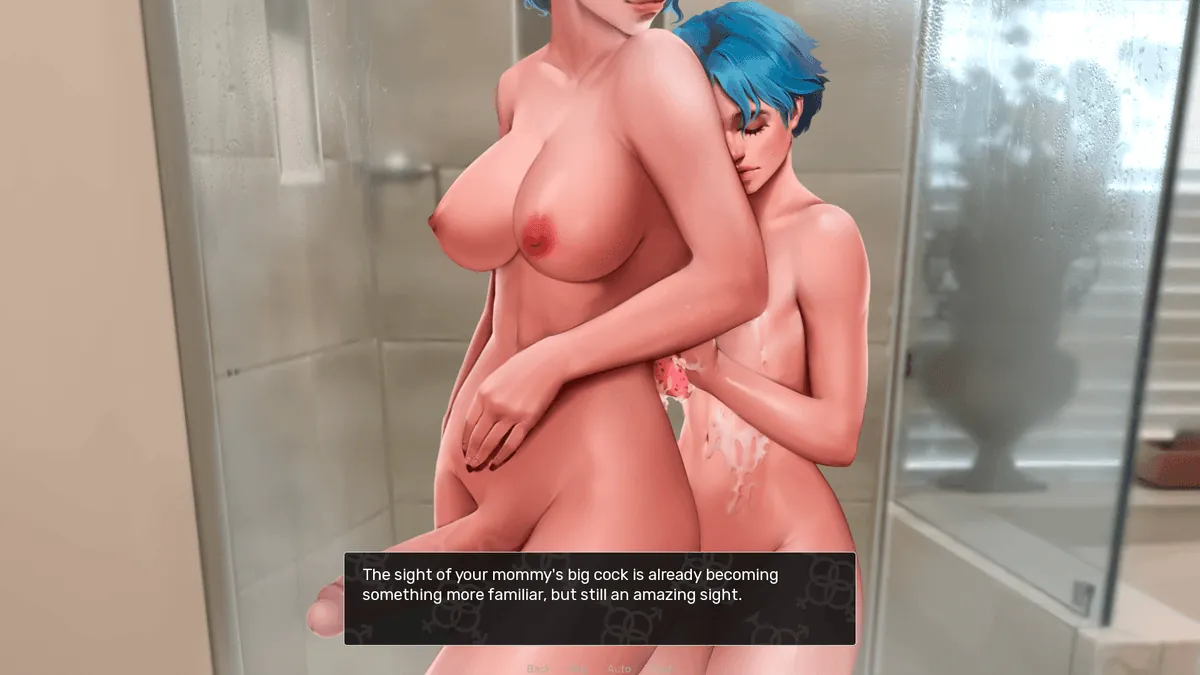
Straitened Times
Play Straitened Times
Straitened Times review
Master gameplay mechanics, character routes, and progression strategies
Straitened Times is a complex narrative-driven game that challenges players to navigate intricate relationship dynamics, manage resources, and make strategic decisions that impact character progression. Whether you’re new to the game or looking to optimize your playthrough, understanding the core mechanics and character routes is essential for success. This guide breaks down everything you need to know about gameplay systems, conflict management, route progression, and character interactions. From mastering the tension mechanics to unlocking exclusive content, we’ll walk you through the strategies that separate casual players from experienced ones.
Understanding Core Gameplay Mechanics in Straitened Times
How Conflict Management Works and Why It Matters
Let me tell you about my first disastrous playthrough of Straitened Times – I thought I was being clever, pushing boundaries and making bold moves. 🤦♂️ Big mistake. I ended up with a game over screen faster than you can say “awkward family dinner.” The heart of this game’s challenge, and what makes it so uniquely gripping, is its sophisticated Straitened Times conflict system. It’s not just a background stat; it’s the ticking clock that dictates your entire experience.
Think of the conflict meter as the emotional barometer of the household. Every interaction, from a simple conversation to a risky decision, affects it. 🎚️ Let’s get straight to the most critical number: 100. If the collective conflict between you and the other characters hits this threshold, it’s an immediate, no-questions-asked game over. Your journey ends, and you’re back to the last save. I learned this the hard way by constantly skipping dinner and being overly nosy, which sent the tension skyrocketing.
But it’s not just about the big blow-ups. The Straitened Times conflict system is subtle. Small, repeated actions build up over time. Leaving characters in the same room for too long, especially if they have existing friction, will cause a slow but steady drip-feed of conflict. Breaking the bathroom lock? That’s a major spike right there. 🚪💥 It’s a system that punishes carelessness and rewards thoughtful, strategic interaction. Your best friend in managing this is your phone. That interface is your lifeline! 📱 You must check it frequently to monitor not only the conflict levels but also your personal status indicators like stress and fatigue. Letting these spiral out of control is another fast track to a bad ending.
Pro Tip: Your primary goal in the early game isn’t to rush relationships; it’s to become a master of domestic peace. A low-conflict environment is the fertile ground where all other character route advancement can happen.
Here’s a quick-reference table to help you navigate the minefield:
| Action | Conflict Impact | Recommended Frequency |
|---|---|---|
| Skipping Dinner | +15 (Major) | Avoid Completely |
| Breaking Bathroom Lock | +25 (Massive) | Extreme Emergency Only |
| Being Caught Snooping | +10 to +20 | Avoid Actively |
| Completing a Chore | -5 (Reduction) | Daily |
| Having a Positive Conversation | -2 to -5 | As Often as Possible |
| Giving a Well-Chosen Gift | -8 (Reduction) | When Resources Allow |
😮 Seeing it laid out like that really puts it into perspective, doesn’t it? A single lock-breaking incident can undo days of careful peacekeeping. This is the core of your resource management strategy for social capital. You’re managing an emotional budget, and every action is a withdrawal or a deposit.
Progression Systems: Repeating Steps and Unlocking New Content
If you’re coming from more linear games, the game progression mechanics in Straitened Times will feel different, maybe even a little frustrating at first. I know I was baffled when the same conversation option stopped working after the third time. 😤 But then it clicked: this isn’t a bug; it’s the brilliant core of the experience. The game is simulating the building of genuine rapport and trust.
Character route advancement is gated behind repetition. You can’t just say “I’m a nice person” once and expect doors to fly open. You need to perform the correct, context-appropriate action multiple times to prove your consistency. For instance, to unlock the next stage of a character’s story, you might need to:
* Offer them a coffee in the morning three days in a row. ☕
* Initiate a specific type of small talk four times.
* Help them with a minor task twice.
This repetition builds what the game tracks internally as “familiarity” or “trust” points. Once you hit the required threshold, a new event, location, or conversation branch will unlock. This is where understanding the tension mechanics gameplay becomes essential. You’re not just mindlessly repeating an action; you’re doing it while simultaneously managing the overall household conflict. Pushing too hard for progression can inflate conflict, creating a delicate balancing act.
The magic question is: when does repetition stop being building rapport and start becoming annoying? 🤔 This is where the tension mechanics gameplay shines. The game has hidden flags that track your recent actions. Spamming the same interaction in a short period will actually start to increase tension and lower your relationship score with that character. The key is patience and variety. Space out your relationship-building actions with other activities like chores or managing other characters.
My Insight: Think of it like learning a musical instrument. 🎸 You don’t become a master in one day. You practice the same scales daily (repetition), and one day, your fingers just know how to play a new song (unlocked content). The game progression mechanics are designed to make your eventual success feel earned and satisfying.
Resource Management and Decision-Making Strategies
Beyond managing emotional states, you are also managing a very tangible set of resources. Your resource management strategy is what enables—or cripples—your entire game plan. You have two primary currencies: Money and Items. 💰🎁
Money is finite, especially early on. You get a small allowance, and finding ways to earn more is a mini-game in itself. You’ll need it for everything from buying crucial gifts to occasionally covering your tracks after a mistake. Every purchase is a strategic decision. Do you buy that book you know Character A wants, or do you save the money for an emergency lock-pick later? There is no “right” answer, only what aligns with your current route priorities.
Items are the physical keys to progression. Many are found by exploring the house at the right times or are given as rewards for completing multi-stage tasks. Others must be purchased. Gifting the right item to the right character at the right moment is a cornerstone of character route advancement. A misplaced gift, however, can be a waste of resources or, worse, increase conflict.
Let’s talk about concrete Straitened Times walkthrough tips for maintaining balance and how to avoid game over:
- Prioritize Stability Over Speed: Your first playthrough should be about learning, not romancing. Focus on keeping conflict below 50. A calm house gives you the breathing room to experiment.
- The Phone is Your Command Center: 🔧 Make it a habit to check your status screen every morning and after every major action. This is your single most important tool for how to avoid game over. You can’t fix a problem you don’t know exists.
- Embrace the Save Function: Save often, and use multiple slots. Before trying a risky action (like breaking a lock), create a new save. This is the ultimate Straitened Times walkthrough tips cheat code.
- Dinner is Non-Negotiable: 🍽️ Skipping dinner is one of the biggest conflict generators in the game. Unless you are deliberately triggering a specific event, always attend dinner. It’s a passive way to reduce tension with multiple characters at once.
- Rotate Your Focus: Don’t hyper-focus on one character. If you spend all your time with one person, you neglect others, and their conflict meters may rise out of neglect or jealousy. A rotating schedule is a solid resource management strategy for your time and attention.
- Chores are Investments: See chores not as tedious tasks, but as low-risk, high-reward investments. They consistently lower household conflict and sometimes provide small opportunities for interaction.
By mastering the flow of resources and information, you transform from a passive participant into the strategic puppeteer of the household’s dynamics. You’ll stop reacting to problems and start orchestrating outcomes. That’s the moment Straitened Times becomes truly unforgettable.
Frequently Asked Questions
How many times do I need to repeat an action to progress?
There’s no single number, as it depends on the action and the character. However, most early-game actions require between 2-4 successful repetitions, spaced out over different days, to trigger the next stage. The game is designed to discourage spamming.
What happens when I reach 100 conflict?
Reaching 100 total conflict results in an immediate game over. The story ends abruptly, often with a cutscene showing the final, irreparable argument that shatters the household. You will need to load a previous save to continue playing.
Straitened Times offers a rich and complex gameplay experience that rewards strategic thinking and careful planning. By mastering the conflict management system, understanding character progression mechanics, and implementing efficient time management strategies, you can unlock the full potential of the game. Whether you’re pursuing a single character route or attempting to complete multiple paths simultaneously, the key to success lies in balancing your actions, monitoring your relationships, and making informed decisions about resource allocation. The game’s depth comes from its interconnected systems where every choice has consequences. As you continue your journey through Straitened Times, remember that experimentation and adaptation are crucial. Each playthrough teaches you something new about the game’s mechanics and hidden possibilities. Share your discoveries with the community, learn from other players’ strategies, and most importantly, enjoy the narrative experience the game offers.





















